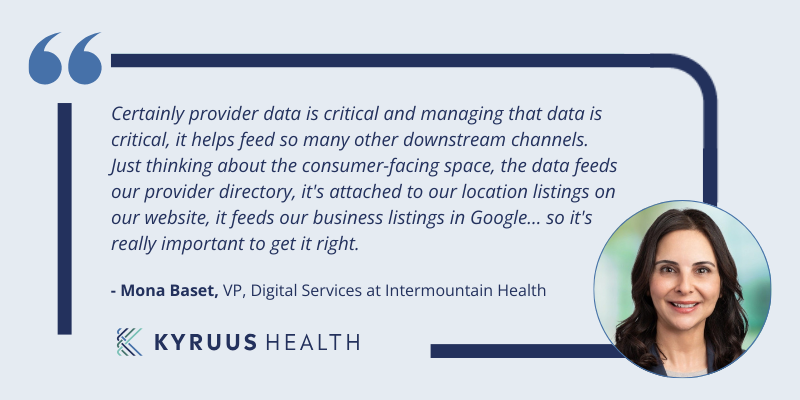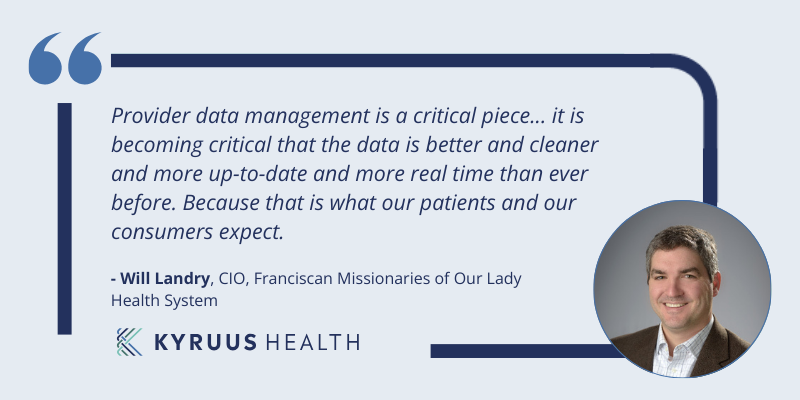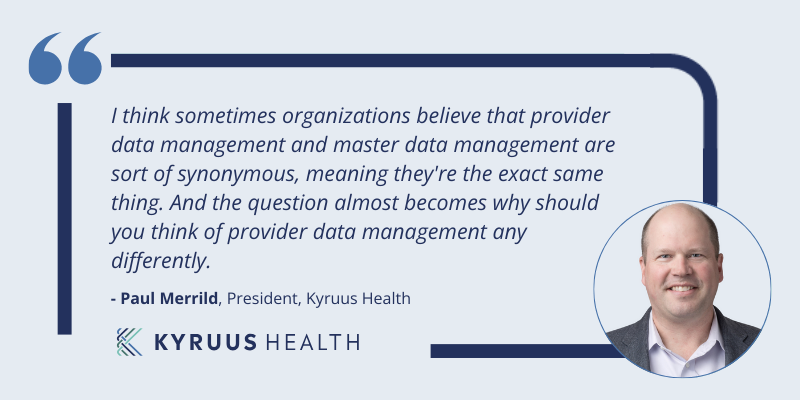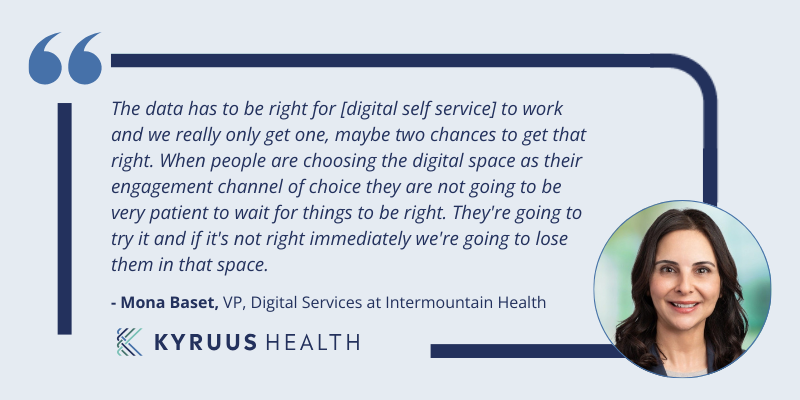As healthcare organizations strive to enhance patient experiences and streamline operations, the role of provider data management (PDM) becomes increasingly critical. This blog explores the strategic value of provider data, the challenges in managing it, and the benefits of integrating it with master data management (MDM). Key insights from Mona Baset, VP of Digital Services at Intermountain Health, Will Landry, CIO at Franciscan Missionaries of Our Lady Health System, and Paul Merrild, President at Kyruus Health are included from a recent healthsystemCIO webinar.
The Strategic Asset of Provider Data
Provider data is not merely a collection of names and contact details; it is a strategic asset that underpins patient access, care coordination, and operational efficiency. Accurate provider data ensures that patients can easily find and book appointments with the right provider for their needs, thereby enhancing patient satisfaction and trust. Moreover, it supports healthcare organizations in optimizing their networks and improving care delivery.

Inaccurate provider data, on the other hand, can create a domino effect of inefficiencies. Patients may struggle to find appropriate care, leading to frustration and potential loss of trust in the healthcare system. Additionally, healthcare organizations may face operational challenges, such as increased manual data updates and IT support tickets, diverting valuable resources from strategic initiatives.

The Role of Master Data Management
While master data management (MDM) is important for overall data governance, provider data demands a specialized approach. MDM provides a framework for centralizing and organizing data across an organization, ensuring consistency and accuracy. However, provider data requires additional attention due to its complexity and the role it plays in healthcare delivery.

Integrating PDM with MDM unlocks powerful capabilities. It allows healthcare organizations to maintain a single source of truth, facilitating accurate provider directories, streamlined care coordination, and optimized network management. This integration also supports compliance with government programs, such as 340B, where accurate provider information is essential for maximizing reimbursements.
Challenges in Provider Data Management
Managing provider data is not without its challenges. Organizations often pull information from multiple data sources, creating complexity in maintaining up-to-date and accurate data across channels. This complexity is compounded by the need to ensure data is consumer-friendly, enabling patients to make informed decisions about their care.

Moreover, the “build vs. buy” decision is a common dilemma for CIOs and IT teams. While some organizations attempt to build their own provider data management system, they often underestimate the complexity and resource requirements involved. Outsourcing PDM to specialized vendors can be a more effective strategy, allowing internal teams to focus on enhancing patient experiences.
The Benefits of Provider Data Accuracy
At its core, clean provider data supports better patient-provider matching, ensuring patients receive appropriate care from a provider who best meets not only their clinical needs, but personal preferences as well. When data accuracy is poor it can lead to poor matches and unsatisfied patients.

Accurate provider data also enhances operational efficiencies and reduces administrative overhead. By reducing the need for manual data updates, healthcare organizations can reallocate staff to higher-value tasks, such as strategic growth initiatives.
Engaging Providers in Data Accuracy
Accurate provider data is important as you work to attract patients across channels (internally, on your website, and across the web), which is vital as our research shows that over 50% of consumers access three or more online resources when gathering information about their care options.
Providers play a crucial role in ensuring the accuracy of their data. However, healthcare organizations must recognize the demands on providers and partner them with administrative leadership to prioritize and manage data elements effectively.
Collaborative partnerships, such as those offered by Kyruus Health, combine external expertise with your own resources to optimize provider data. This approach empowers providers, streamlines processes, and ultimately drives organizational success.
Accurate Provider Data Drives Value
In conclusion, accurate provider data is a strategic asset that drives significant value for healthcare organizations. By integrating provider data management with master data management, organizations can unlock powerful capabilities that enhance patient experiences and operational efficiencies. While challenges exist, investing in a purpose-built provider data management solution and engaging providers in data accuracy efforts are key to overcoming these hurdles.
As healthcare continues to evolve, the importance of clean and centralized provider data will only grow. Organizations that recognize this and take proactive steps to m

anage their provider data effectively will be well-positioned to thrive in the competitive healthcare landscape. Interested in learning more? Schedule time with a member of our team.

